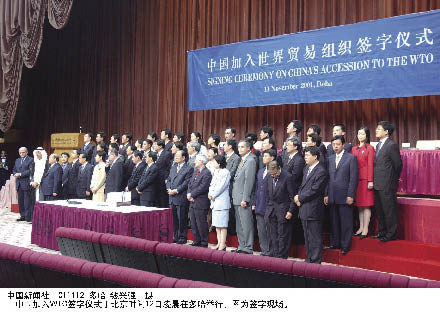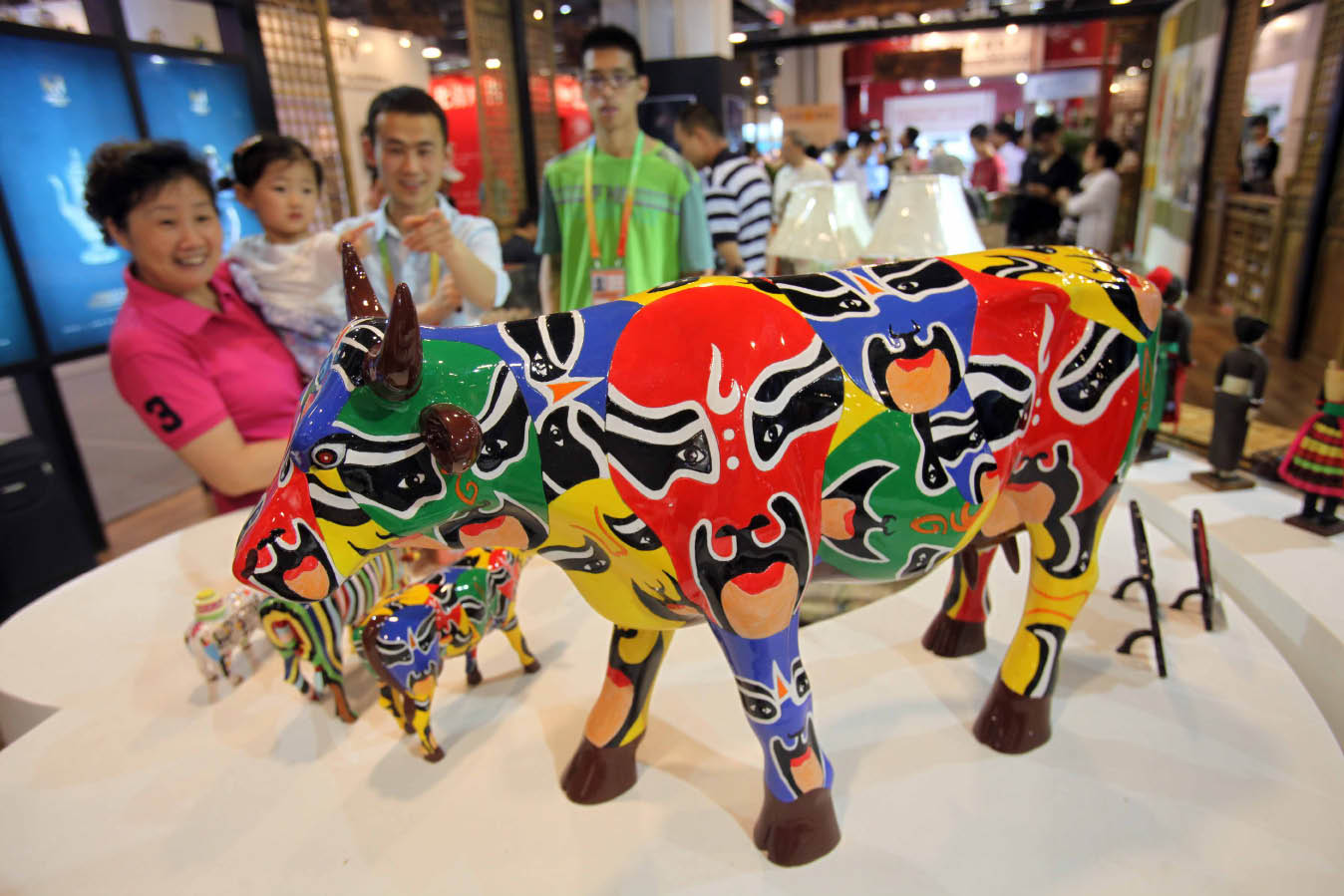China's Accession to the WTO
By staff reporter LI WUZHOU
 |
|
Signing ceremony on China's accession to the WTO on November 11, 2001 in Doha, Qatar. Cnsphoto |
LONG Yongtu is well known in China for his work as the chief negotiator on China's entry into the World Trade Organization (WTO), helping to finally ensure its success in 2001, after 15 years of negotiations.
It was not an urgent task for China to enter into WTO until the policies of reform and opening-up were carried out. China's foreign trade volume rapidly increased from US $20.6 billion in 1978 to US $73.85 billion in 1986, 85 percent of which were made with the contracting parties of General Agreement on Tariffs and Trade (GATT). Therefore, China was in need for an unconditional most favored nation treatment as well as an equitable trading environment. In July 1986, China notified the GATT of its wish to resume its status as a GATT contracting party (China was one of the 23 original signatories of GATT in 1948).
However, China was reluctant to acknowledge the market economy that was taking hold in the country when the WTO audited its economic system. The negotiations didn't resume until Deng Xiaoping proposed the idea of a socialist market economy system, which helped to finalize the audit by the end of 1992.
The path did not smooth out immediately. It took another seven years to reach an agreement between China and the U.S., due to the tough stance that the United States took and precarious Sino-U.S. diplomatic relations.
China finally officially became the 143rd member of the WTO in December 2001.
Long Yongtu believes that China has developed a better understanding of common international practices; these can be seen in the many positive profound changes that have taken place in its trade relations.
Entering into the WTO is a win-win situation for China and the world. The process of WTO entry negotiations helped to accelerate China's opening-up process. China's development is vital to the world, offering a vast market with infinite opportunities.

